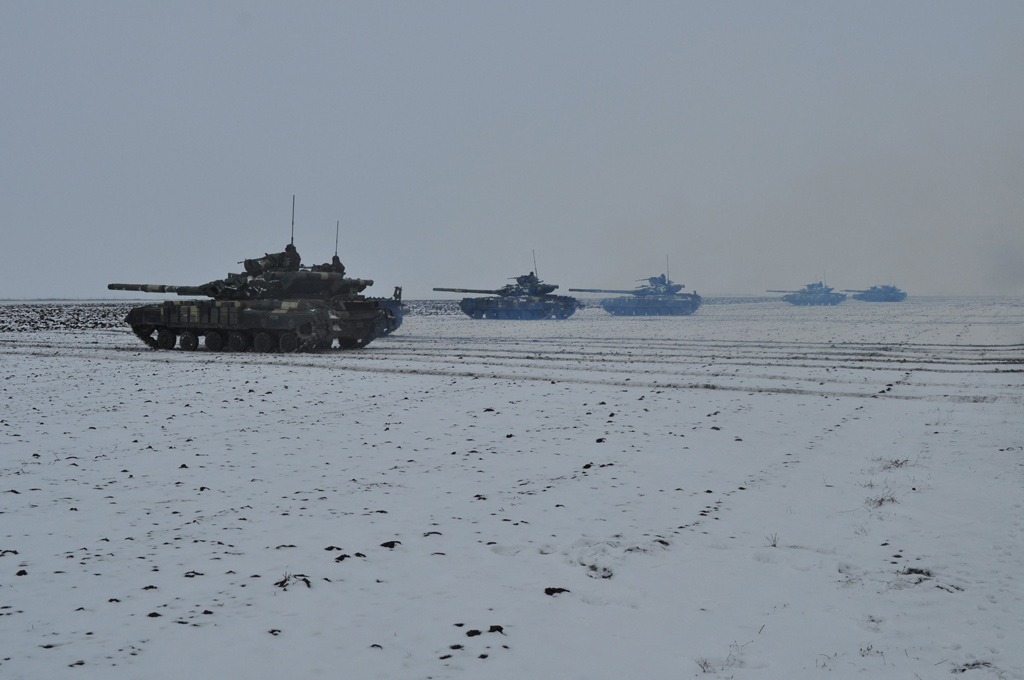
4 parameters for Turkish position on Ukraine crisis
One way or the way, all Ankara wants is a peaceful solution to the escalating standoff in Ukraine
Share
The Ukrainian crisis has been the main agenda of international politics for the last two years. However, the Ukrainian state has been on the table of the Western-Russian global rivalry for the last two decades. Accordingly, Ukraine's political discourse is divided into two different and conflictual realms, mainly by the pro-Western and pro-Russian actors.
The Orange Revolution was the first front won by the pro-Western alliance since it prevented Victor Yanukovych from coming to power as the country's president. However, Yanukovych seized power in 2010 and became president. During his presidency, as expected, he adopted a pro-Russian policy.
Then, the pro-Western alliance fought back and won a second front with the Maidan Revolution in 2014, when they ousted Yanukovych. In retaliation, Russia meddled in Ukraine's domestic politics, illegally annexed the Crimean Peninsula and supported pro-Russian separatists to declare independence from Ukraine in the Donbass region. The world public opinion, especially the Western countries, did not recognize this annexation and began to impose economic sanctions on Russia due to this illegal move. Thus, the crisis was internationalized.
Under the leadership of the United States, many Western countries have been trying to deter Russia and started to take certain security, political and economic measures against Moscow. However, there are some significant differences among the Western countries regarding the measures against the Russian Federation. The U.S. instrumentalizes the NATO alliance and follows a securitized policy toward Russia. However, some countries such as Germany pursue a relatively moderate policy and do not want to alienate Russia.
As a NATO member, Turkey's position is similar to the moderate group. Turkey, which wants peace and stability in the region, prefers to rely on diplomatic means to de-escalate tension. First, Turkey maintains a neutral stance toward the Ukrainian crisis. President Recep Tayyip Erdoğan and other Turkish officials have repeatedly declared that Turkey is ready to mediate between Ukraine and Russia. Although Ankara openly rejects the annexation of Crimea and supports the political sovereignty and territorial integrity of Ukraine, it intends to play a benevolent mediator's role for both sides.
Second, to avert large-scale violence in the region, Turkey prefers the use of a peaceful political and diplomatic discourse to resolve the crisis. Therefore, Erdoğan considers the Organization for Security and Co-operation in Europe (OSCE), not the NATO alliance, the main address for fixing the problem. Accordingly, he declared that he is ready to host the peace talks and/or the next Minsk Meeting in Istanbul or in any other Turkish city.
Tags »
Related Articles






